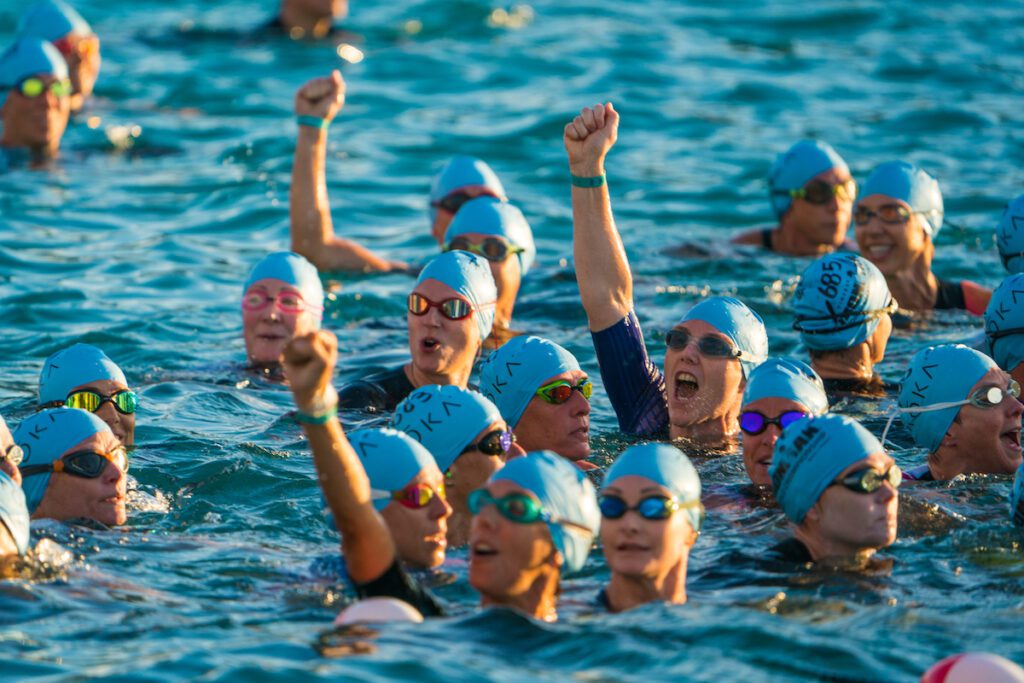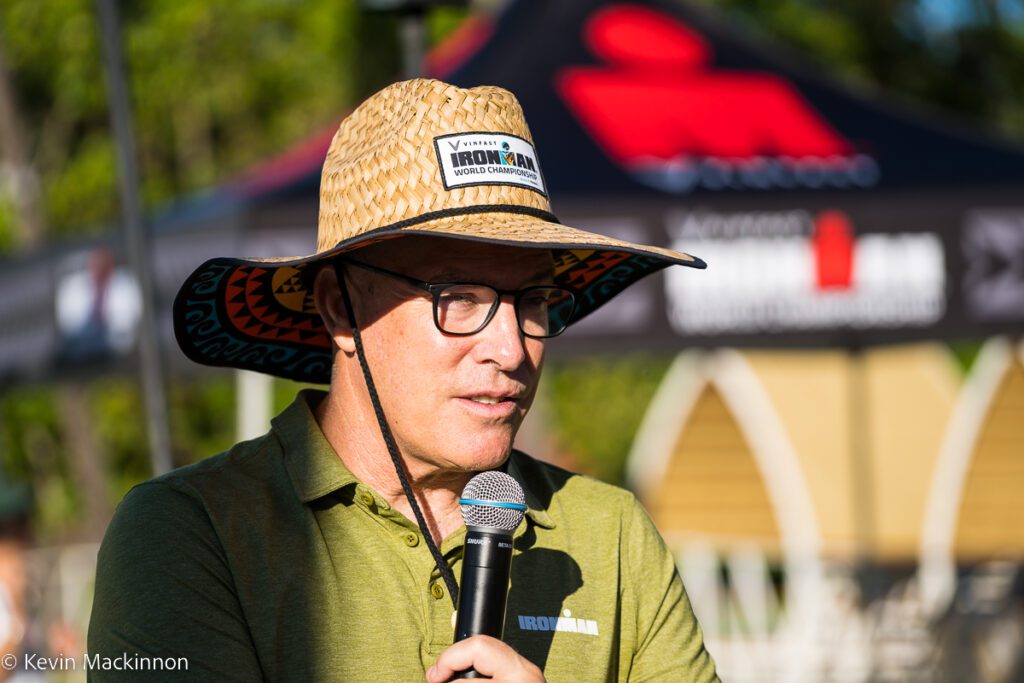Andrew Messick: I wanted Ironman to be a bigger, more powerful, more international sports brand
Over the last 12 years Ironman has increased its international footprint dramatically
 Photo by:
Tullio M Puglia, Getty Images
Photo by:
Tullio M Puglia, Getty Images
In a follow-up interview today, Ironman President and CEO Andrew Messick provided some insights on why he’s decided to retire after 12 years with the company. One of his visions when he took on the role with Ironman was to make the company “a bigger, more powerful, more international sports brand.”
As you can see from the “milestones” achieved during Messick’s tenure with the company (see below), he’s certainly achieved that goal. Ironman and Ironman 70.3 events appeared in 30 new countries over the last 12 years, with full-distance races increasing from 25 to 44 events around the world. Ironman 70.3 races increased from 54 race to 124 globally.
Ironman milestones during Andrew Messick’s tenure as Ironman President and CEO
During Messick’s time as the CEO and President Ironman also implemented a rotating venue for the Ironman 70.3 World Championship, and, starting this year, we’ll see a second day of racing, with the men competing in Nice and the women racing in Kona. The venues will be switched for the men and women next year.

Focus on women
“I hope that part of my legacy is that I took the world championships outside of the USA,” he said. “I think the internationalization of the world championships is something that the team did during my tenure. I’d like that to be part of my legacy. Part of my legacy has also been a focus on women.”
In addition to “internationalization,” Messick said his goal was to also make Ironman “more inclusive.” While those behind the “50 for Kona” movement, which pushed for equal professional women’s participation in Kona, might argue that Messick was slow to help on that front, in the end women’s participation and opportunity at Ironman events has increased dramatically during his tenure. In 2017 Ironman implemented a women’s only day of racing at the Ironman 70.3 World Championship, and after a second day of racing was added in Kona last year that included all the women and a few men’s age groups, this year the women will be racing exclusively in Kona.
“The moment we had the opportunity to give the women their own day, we did it,” Messick said. The second day of racing is possible because of the dramatic increase in women’s participation at the two world championships. On the full-distance front, it’s grown from 560 athletes in 2011 to aproximately 1,800 athletes in 2022. For the 70.3 worlds it’s grown from 600 athletes in 2011 to aproximately 2,100 athletes in 2022.
There’s still a lot more work to do, though, Messick is quick to point out.
“We’ve done a really good job – I’m excited about what the team has been able to achieve,” he said, but admits that “There is still a long way to go. Ironman Frankfurt was 13 per cent female. Ironman Lake Placid will be 30 per cent.”
While programs like “Women for Tri” have helped and “are the right ones,” Messick says that “its not a switch that you click” and Iroman needs to “look for opportunities to make women feel more welcome.”

Time frame
Messick “started having serious conversations with the board at the beginning of 2023” about his retirement, he said.
“This job takes a lot of effort and energy,” he said. “At this point in the arc of my life and career, a lot of the things that we are starting to work on are going to take a lot of time to come to fruition, I don’t want to start something I can’t finish.”
Messick also admits that the COVID-19 pandemic was challenging for both the company and him personally.
“I’m proud of the way we overcame obstacles,” he said. “Thanks to COVID, in 2020 our income was 85 per cent lower than expectations. There are lots of people whose job at Ironman puts food on the table. We fought like crazy to survive. We managed to provide every single athlete who paid for a race a race, or gave them their money back.”
“All of us have a fixed amount of energy,” Messick contiued. “When you’re as focused on work as I have been the last few years it comes at the expense of other things.
Post-COVID recovery
“I think we’re on a positive path to fully recover post COVID,” Messick said. “I think the team is doing all the right things. The tailwinds that have propelled the sport historically are still in place. While the post-Covid response has not been as good in Ironman as 70.3, by in large, I’m leaving the company in good place for the next person.”
“I think the fundamental appeal of triathlon remains super strong,” Messick continued. “I worry a little bit that the pandemic has affected the ecosystem of shorter races that get people into the sport.”
Endurance Sport Expansion
Messick managed to renew the company’s focus on full- and half-distance triathlon racing (while there remain a few 5150 events in the company’s portfolio, Ironman moved away from offering that distance as part of a series), but dramatically expanded the company’s ownership of other endurance events.
“I have long believed that the skills and the capabilities that we’ve developed as a company, working with partners, delivering great race experiences, those don’t just apply to long-distance triathlon,” he said. “We’ve had a great opportunity to be able to expand our portfolio into other endurance events. It helps with scale. The trick is to not lose focus and ensure the Ironman brand and 70.3 brand remain strong.”
Will the Ironman World Championship move from Kona? Maybe, says CEO Andrew Messick
Legacy
It’s hardly news that Ironman is possibly the most criticized organization in the sport, which has put Messick in the spotlight more than a few times during his 12 years with the company.
As Messick admits, “no one’s decision making process is perfect.”
An Ironman competitor long before he started working for the company, Messick is, in many ways, a true triathlon junkie and an avid age grouper. Rolling swim starts, a measure that came into play after he started at the company, got a lot of support because of his own personal feelings about swim starts.
In terms of full disclosure, I worked for Messick during my last four years working at Ironman. He was always supportive to me and my family, and was always happy to talk triathlon – I would argue his love of the sport matches mine.
While there will certainly be those who will be critical of Messick and his tenure with Ironman, and while I’ve questioned many of the company’s decisions over the years, there is no denying just how much the company has grown since he became involved 12 years ago.
